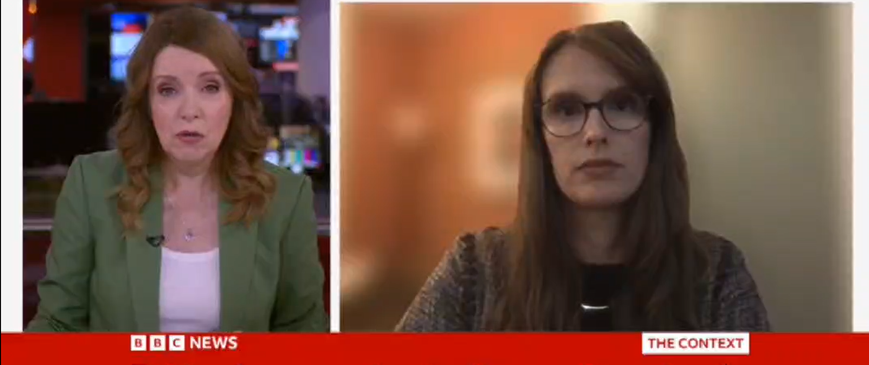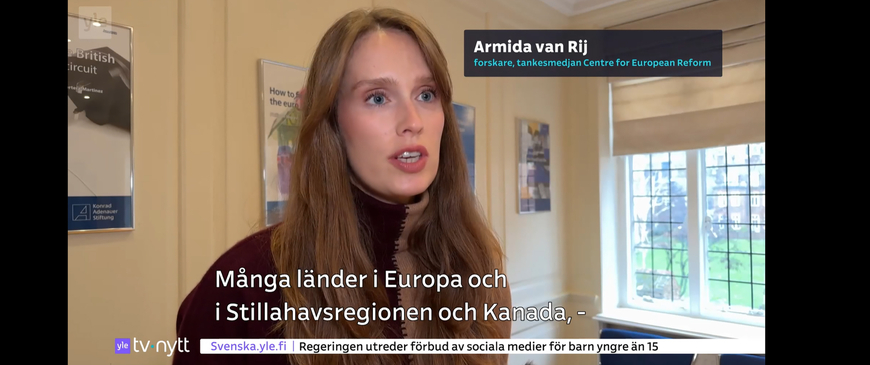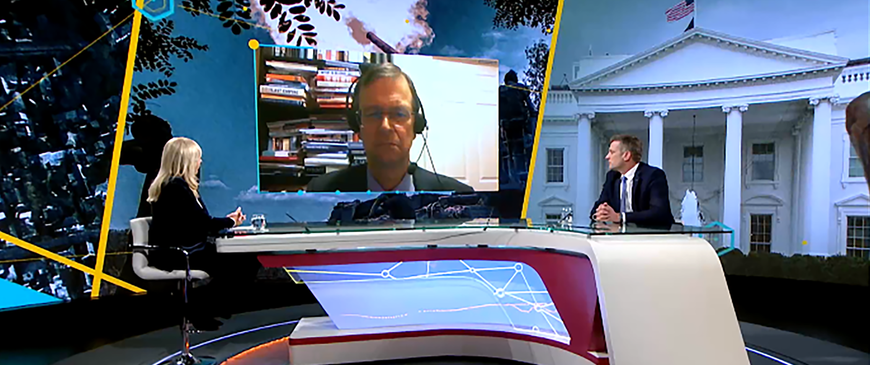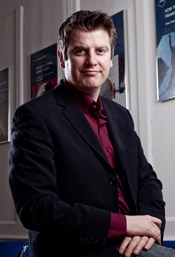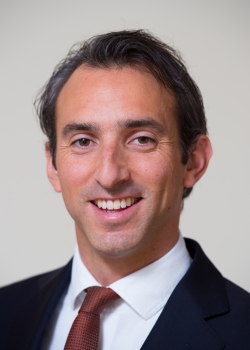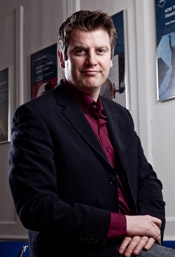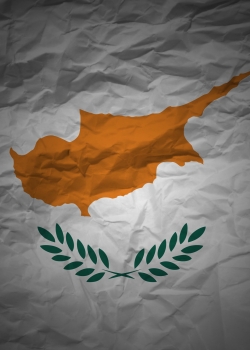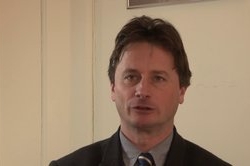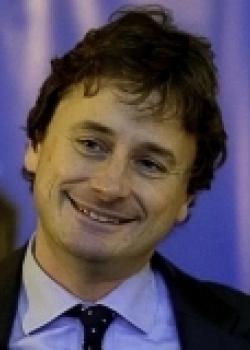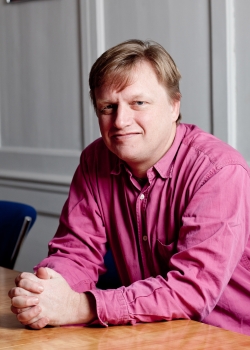Press
Polish PM 'clear favourite' for next commission chief
04 April 2013
EU Observer
Polish PM Tusk and foreign minister Sikorski are "clear favourites" to become the next European Commission head or EU foreign affairs chief, according to a note by Hugh Brady, an analyst at the London-based think tank the CER.
EU's neighbourhood policy becoming more political, say experts
02 April 2013
EurActiv
"What you are seeing is the EEAS playing a greater role in the ENP. This is bringing foreign policy priorities to the foreground," Rem Korteweg, of the CER told EurActiv.
Germany sees itself as Europe's grown-up, children sullen
01 April 2013
Reuters
"German policy-makers have taken to their new found status with something close to gusto," Simon Tilford said in the latest edition of the CER's bulletin."They routinely tell other eurozone countries how to run their economies, citing Germany as a model for the currency union as a whole."
The Brussels backroom deal that will live in infamy
01 April 2013
Carnegie Europe
The decision to establish a third official seat of the European Parliament (EP) in Dresden, quietly announced on Friday afternoon, when most observers and journalists had already left Brussels to head home for Easter, is a classic example of EU horse-trading. It is also epitomises everything that is wrong with Brussels.
Cameron: barriere sul welfare
26 March 2013
Il sole 24 Ore
l'Europa e proprio su quel terreno - il mercato interno, di cui la libera circolazione è caposaldo - che a Londra sta più caro. "Mi aspetto molti ricorsi alla Corte di giustizia", spiega Hugo Brady del CER.
Die Angst vor der Kontopfändung greift um sich
26 March 2013
Manager Magazin
"Auch andere Länder haben sehr schwache Banken, die letztlich rekapitalisiert werden müssen", sagt Simon Tilford, CER. "Wer eine Zwangsabgabe auf Bankkonten einführt, riskiert, dass Bürger in Spanien oder Italien zwei Mal darüber nachdenken, ob sie ihr Geld den heimischen Banken überlassen."
Cyprus needs to tax Russian deposit holders
22 March 2013
The Guardian
It's the best solution to banking crisis in Cyprus. It would alienate Moscow, but bring greater EU support
Interview on 'Do Britain’s European ties damage its prosperity?'
22 March 2013
Eurosceptics claim that EU membership has become a major drag on the British economy. If Britain left the EU, they argue, it would be freed of irksome continental influences like regulations and protectionism – and would consequently become freer, more prosperous and truer to its globalising nature.
Life, liberty and the pursuit of oil
21 March 2013
European Voice
Katinka Barysch, deputy director of the CER, a think-tank based in London, points out that these are already important states in the transit of gas to the EU and are destined to become more important as new reserves in central Asia are developed.
The EU battle Cameron could win
20 March 2013
Prospect
In his big European speech on 23rd January, David Cameron said he wanted radical reform of the European Union or, failing that, a series of unilateral opt-outs.
Cyprus bailout incites turmoil as blame flies
18 March 2013
The New York Times
Officials scrambled to explain what went wrong and how best to control the damage of what Philip Whyte, a senior research fellow at the CER, called a “completely irrational decision” to make bank depositors liable for part of the bailout.
Boris Johnson, pourquoi les Anglais en sont fous
15 March 2013
Le Monde
"Boris n'était pas eurosceptique au début, se souvient Charles Grant, directeur du CER et qui fut correspondant à Bruxelles pour The Economist, en même temps que Boris. Il voulait devenir célèbre. Etre drôle, important, original à tout prix. Et quoi de mieux, pour cela, que s'attaquer à la pensée unique ?"
In Cyprus bailout, what's Russia got to do with it?
15 March 2013
Marketplace
Simon Tilford of the Centre for European Reform says that might have something to do the biggest banking customers in Cyprus. "By bailing out Cyprus, they are bailing out Russian oligarchs and financiers who have used Cyprus as a financial center," says Tilford.
EU could save billions with cross-border renewables co-operation
14 March 2013
Reuters
"Germany is a good example of how renewable policy has been driven as much, or possibly more, by industrial and employment policy concerns than it has by climate policy," said Stephen Tindale, associate fellow at the London-based Centre for European Reform.
Isolated Britain fails to avert EU bank bonus cap
06 March 2013
Politics UK
"Britain has done a lot to isolate itself from the rest of the European Union," said Philip Whyte of the Centre for European Reform, a think-tank. "It isn't exercising very much influence in European debates, pretty much across the board."
Isolated Britain fails to avert EU bank bonus cap
05 March 2013
Reuters
"Britain has done a lot to isolate itself from the rest of the European Union," said Philip Whyte of the Centre for European Reform, a think-tank. "It isn't exercising very much influence in European debates, pretty much across the board."
L'invasion de grillons
04 March 2013
Le Monde
Pour Charles Grant, qui dirige à Londres, non sans mérite, le Centre for European Reform, "la démocratie est le talon d'Achille de l'euro".
Quand les think tanks doutent Europe
04 March 2013
Les Echos
Philip Whyte du Centre for European Reform (britannique) critique l'expression, popularisée par les euro-sceptiques de son pays, selon laquelle "la Grande-Bretagne s'est enchaînée à un cadavre" et voit son activité économique bridée par les mille contraintes que sait inventer la bureaucratie bruxelloise.
Britain takes on Brussels
04 March 2013
The New York Times
The Cameron government considers the bonus cap "misguided and fear it could impact negatively on London without even combating the excessive risk-taking it was meant to address," said Simon Tilford, of the CER. "But London is caught between a rock and a hard place, as there’s much popular antipathy toward the bankers," Mr Tilford said. The issue of banker remuneration "is pretty toxic stuff Britain," he added.
Europe's protest parties on the march
01 March 2013
The Guardian
"Voters now associate structural reforms with slump, rising unemployment and social stress," said Charles Grant and Simon Tilford of the CER in a paper published on Friday. "The Berlin-Brussels-Frankfurt consensus on austerity that Monti's government [pursued] has discredited the very reforms that are needed to boost the Italian economy."

